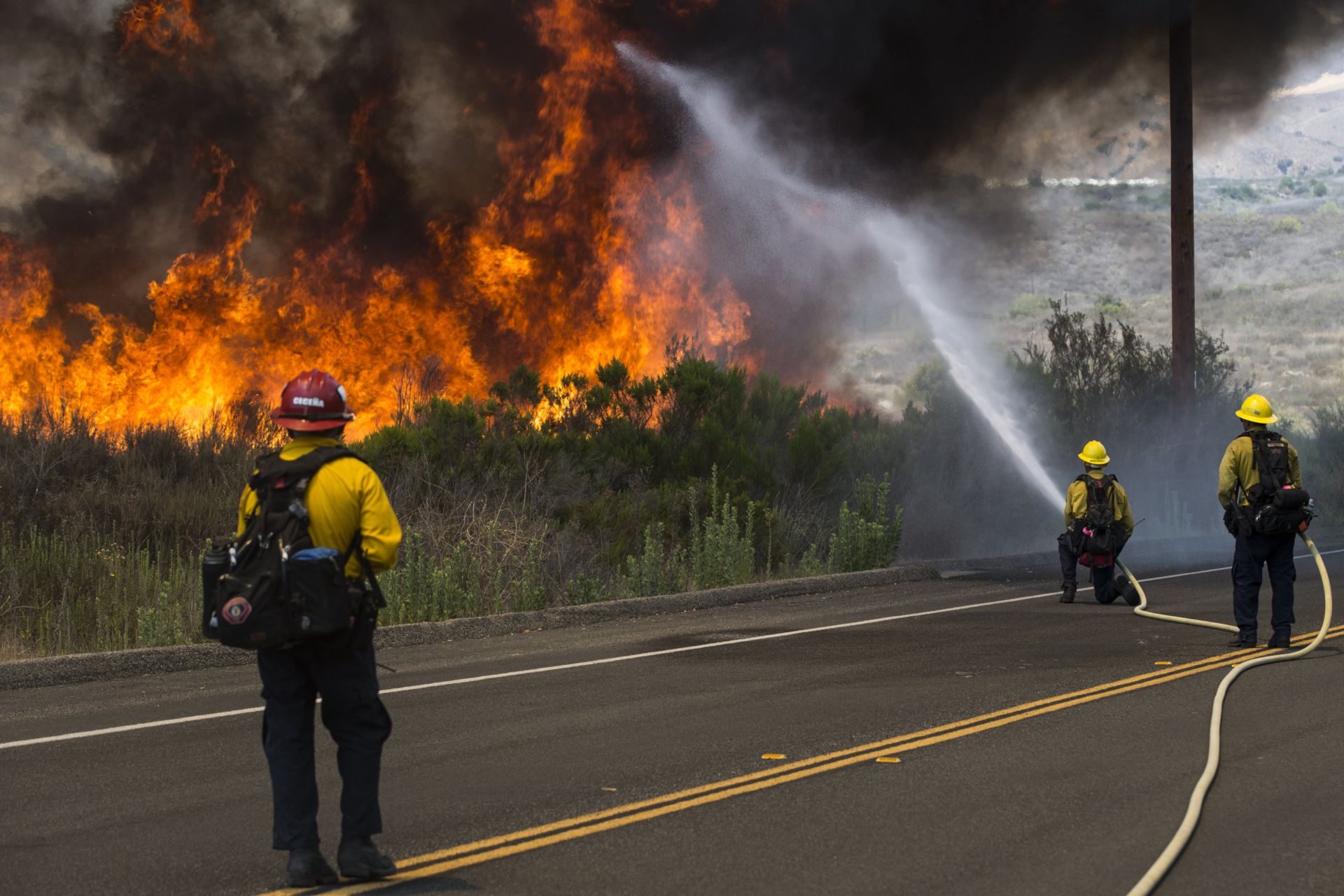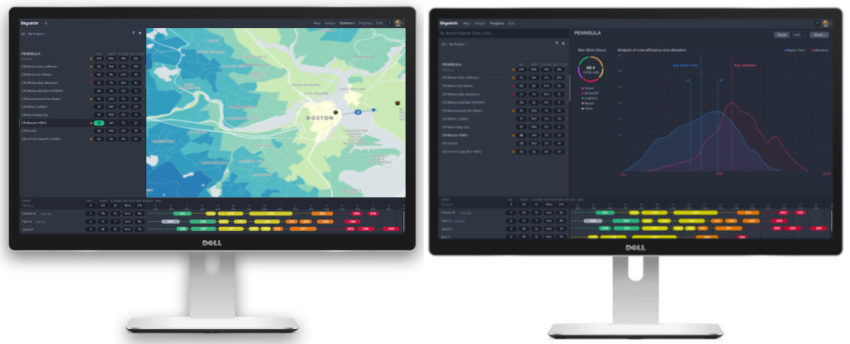Throughout the course of history, humans have overcome a seemingly endless array of challenges and obstacles earning the top spot in the natural pecking order. It would be quite reasonable to claim that humans are their own greatest danger. Unfortunately, sometimes, nature reminds people of their own mortality by tearing at the pillars that they have erected: these reminders come in the form of natural disasters.
The current reality of natural disasters is (perhaps unexpectedly) quite forgiving. According to a report by the Centre for Research on the Epidemiology of Disasters, in 2018, there was a total of 315 reported natural disasters worldwide. The total death toll numbered 11,804—a figure that is magnitudes lower than statistics related to the most common causes of death in the U.S. alone.
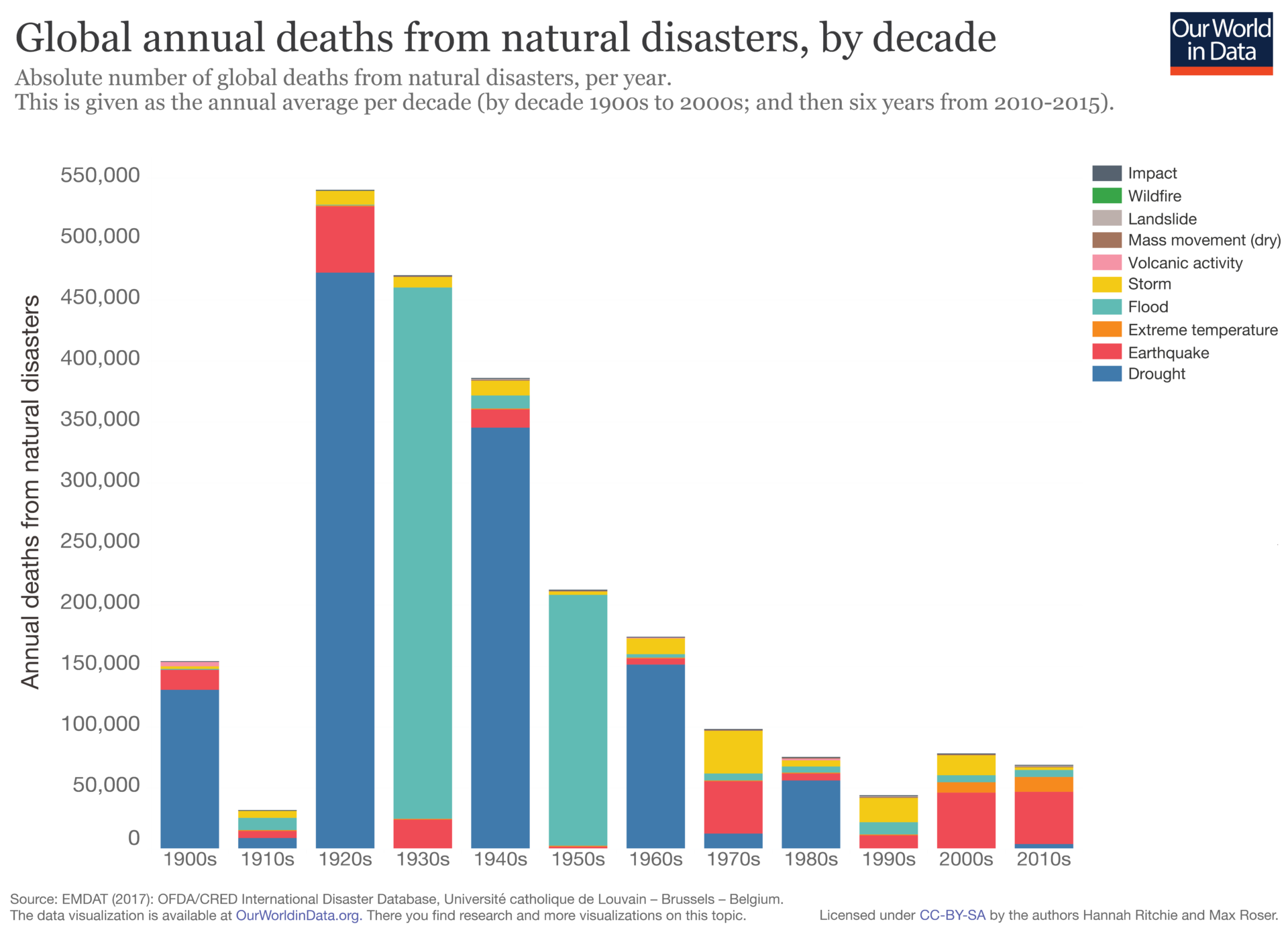
Furthermore, Our World in Data has gathered data indicating that death rate relating to natural disasters has plateaued over the last several decades, after drastically decreasing in the middle of the 20th century. This flatline in deaths is in spite of a constantly growing world population.
This is all the more remarkable in the light of the rising number of natural disasters since the 1960s. In short, in the last fifty years, natural disasters have multiplied with climate change and global warming, but the tally of deaths has decreased. That’s good news. But still, more can be done to save lives.
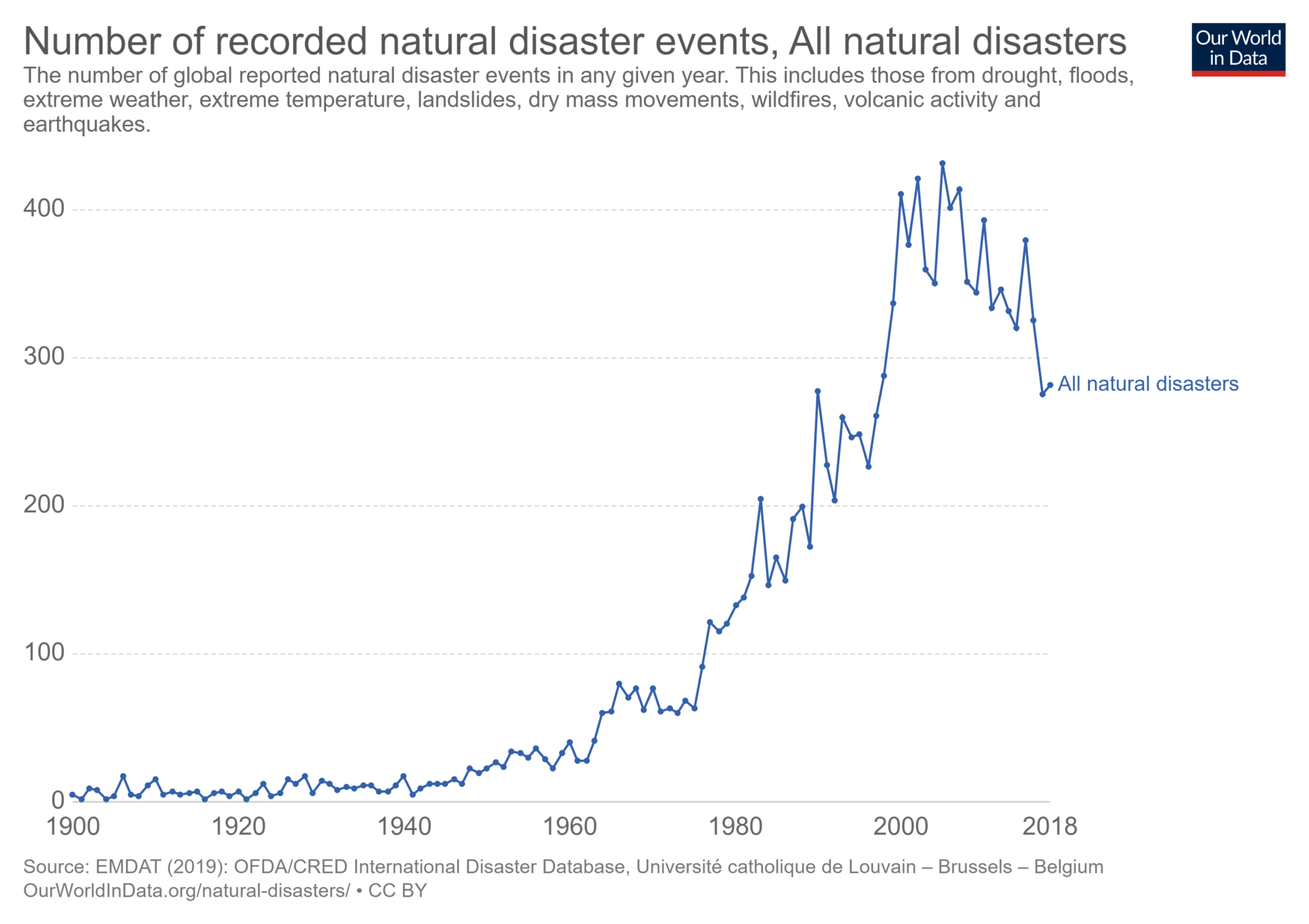
Of course, the impact of natural disasters is never entirely limited to death tallies. There is another important aspect: the economic impact on the disasters’ survivors. This is the one that has the greatest ramifications and is most widespread. Referring to the CRED report from 2018, over 68 million people were affected by natural disasters which caused over $131.7 billion in losses around the world.
So there’s still much work to do to contain economic losses for millions of people affected by natural disasters and, crucially, save lives and provide an effective Disaster Relief Outreach Program.
In this week edition of Impakter’s deal of the week, we focus on the companies that are actively trying to help when natural disasters occur.
In the Picture: Dispatchr UI. Photo Credit DispatchrFounded in Silicon Valley, Dispatchr is a startup that gathers infrastructure data in order to prevent disasters before they even occur. While natural disasters are inevitable, the magnitude of their impact is largely determined by the state of the infrastructure.
Dispatchr aims to mitigate this threat by pooling all the relevant information in an understandable and visual manner, rendering a real-time geospatial picture that showcases possible threats as they arise. The product offered by the startup is a comprehensive cloud-based solution that keeps track of data, operations and planning in various disaster-prevention efforts. The platform also keeps track of inventory and maintenance operations, allowing workers to focus on addressing the important threats instead of on back-office operations.
When disasters do occur, Dispatchr aids in the creation of a restoration plan and participates in storm-modeling. Most importantly, the platform allows for the management of repair crews, ensuring that work gets completed on time, which—in the case of a power outage—can save dozens of lives and conserve a multitude of resources.
The platform is also mobile-friendly: it provides the live location of all crews at work, and can also inform crews about previous work history in their locations and asset details. This enhances the decision-making process, reducing the possibility of human error.
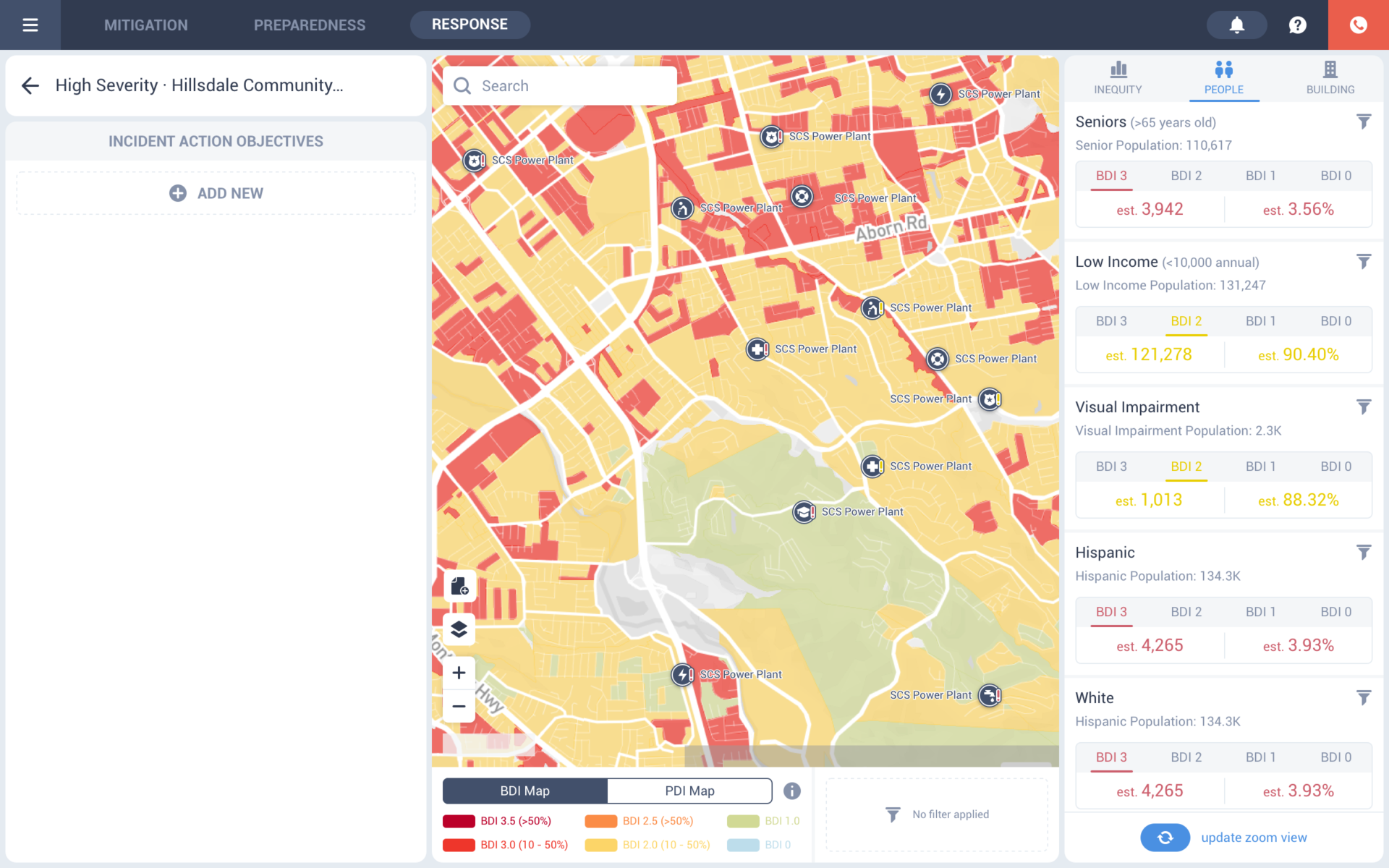
Another Silicon Valley-based startup, One Concern, focuses on the response to natural disasters. Foremost, One Concern recognizes which areas are susceptible to be impacted the most in the case of a storm. As a result, when a storm comes, emergency services are informed of the areas in which they will most likely be needed most.
The company utilizes a machine learning algorithm in order to assign unique threat levels to all man-made structures and natural elements, providing communities with actionable information. One Concern has modeled entire cities, identifying various drivers of natural disasters and delegating emergency resources to where their effects are felt most. The company can then utilize its models in order to run realistic simulations in order to allow people to understand the risks that they face.
When One Concern is being used during a natural disaster, the system gathers more data. Following these data, solutions become smarter and quicker as the platform builds off the best practices from previous scenarios.
Following a recent article posted by the New York Times, the effectiveness of Once Concern has been questioned. While the city of San Francisco, one of the early users dropped out of the contract, in Seattle research showed relevant errors in the system leaving populated areas out of the map for early disaster response. While Seattle will still use One Concern as an insurance company is covering its cost, it’s no doubt that the accuracy of One Concern predictions rely on both the quality of the info gathered and how the AI system will process them. While it’s clear that this system now could save a lot of lives, the path the make it better regarding the data collected and their quality is still fairly long.
Conclusion
Two natural disasters will never be identical, but when they do occur, emergency services will face unique scenarios and will have to make critical decisions. By using available data, based on previous scenarios, the impact of natural disasters is greatly mitigated.
In the future, it will be crucial to apply the power of modern technology to natural disasters, as the frequency and magnitude of the disasters will only continue to increase as climate change becomes more and more pronounced.
In the cover photo: Firefighters with the Camp Pendleton Fire Department combat a fire in the Santa Margarita/De Luz Housing area on Marine Corps Base Camp Pendleton, California, July 6, 2018. Photo Credit: U.S. Marine Corps.
EDITOR’S NOTE: The opinions expressed here by Impakter.com columnists are their own, not those of Impakter.com.


